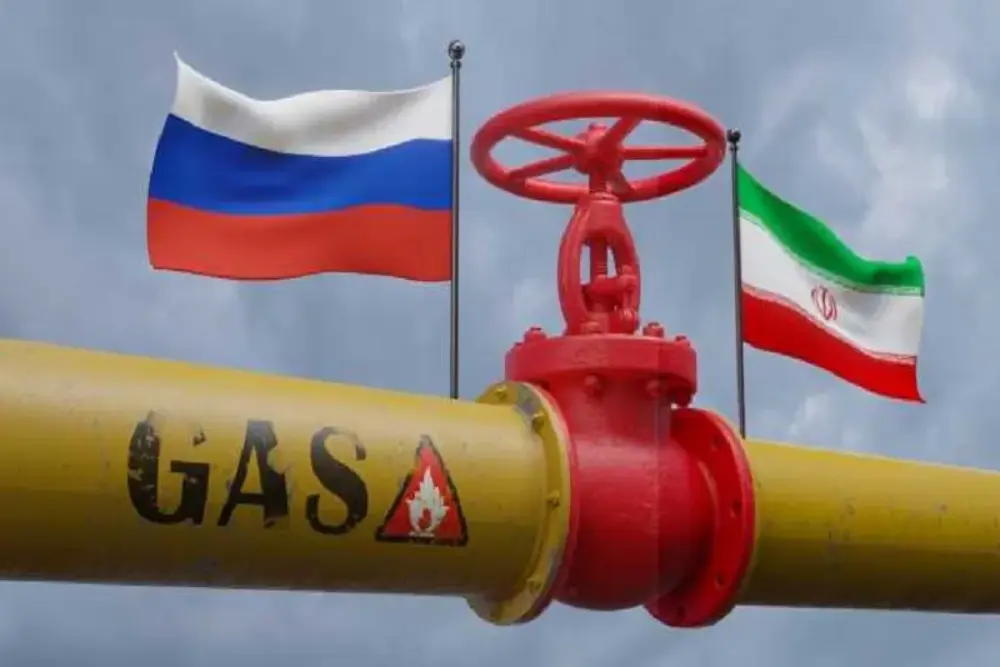The argument can be made that this is a mutually beneficial way to advance their respective ulterior interests and isn’t as substantive as some might have initially thought due to the serious political and technical challenges that this project faces.
A top Russian expert candidly analyzed their country’s newly signed gas pipeline Memorandum of Understanding (MoU) with Iran from late June in two interviews with Sputnik and Azerbaijan’s News.Az. Igor Yushkov, who’s described by the prestigious Russian International Affairs Council as a Professor at the Financial University under the Government of the Russian Federation and leading expert at the National Energy Security Fund, strongly suggested that this might be more about optics than substance.
This agreement appears to be a game-changer at first glance since some of the 300 million cubic meters of gas per day that Russia plans to export to Iran, which Sputnik calculated roughly equals the maximum output of the now-defunct Nord Stream pipelines, could also meet some of India’s growing energy needs. The primary obstacle though will be in getting the approval of all Caspian states for an undersea pipeline, which Yushkov hinted to his country’s media might be much more difficult than it seems.
He elaborated more on this to Azerbaijani media, explaining that the estimated $10 billion worth of investments required wouldn’t make the venture profitable if Kommersant’s report about the gas being sold at around $100 per thousand meters is true. That’s close to the price paid by the CIS countries and is 62% lower than what China pays for importing gas from the Power of Siberia pipeline. He concluded that the plans “seem unrealistic and are most likely pursuing political rather than economic goals.”
Yushkov might be onto something too since it’s important for readers to remember that Russia is reportedly embroiled in a pricing dispute with China over the Power of Siberia II pipeline that was analyzed in this piece here from early June shortly after Putin’s latest trip there the month prior. In brief, Russia wants to get the highest price possible while China wants the lowest, with each believing that the other will bend to their demands the longer that the talks drag on.
From Russia’s perspective, the US’ impending “Pivot (back) to Asia” will inevitably lead to more credible threats against the maritime energy supply chains that China is dependent upon for powering its economy, thus compelling the People’s Republic to agree to higher prices for more reliable Russian gas. Meanwhile, China’s view is that growing financial pressures on Russia will compel it to agree to lower prices for reasons of convenience, helped along as they are by the difficulty of selling its gas elsewhere.
With these competing calculations in mind, the newly signed Russian-Iranian gas MoU might actually be a ploy for improving Moscow’s negotiating leverage with Beijing by showing the latter that it does indeed have supposedly viable alternatives for selling its gas to Asia. As for what Kommersant reported regarding the low rate that Russia allegedly agreed to sell its gas to Iran for, it’s either inaccurate or a preliminary understanding that could very well change as the talks towards a final deal evolve.
After all, if Russia is supposedly desperate enough for revenue that it’ll begin the long process of trying to seek all Caspian states’ approval for an undersea pipeline which can’t be assured and which’ll require a huge investment that’ll barely pay off in the event that they agree, then it doesn’t make sense to hold off on a deal with China. The Power of Siberia II could begin construction immediately after the contract is signed, would predictably cost less, and wouldn’t face anywhere near the same technical challenges.
For these reasons, it’s apparent that everything isn’t as clear-cut as it seems when it comes to the Russian-Iranian gas MoU, with this agreement being less of a game-changer than it appeared at first glance upon further scrutiny and much more like a ploy of sorts to bolster Russia’s hand in talks with China. Iran is probably playing along since the optimistic reports that followed from friendly media drew awareness to its crucial geostrategic position and accordingly improved its soft power at no cost to itself.
Altogether, it can therefore be concluded that their newly signed understanding is a mutually beneficial way to advance their respective ulterior interests and isn’t as substantive as some might have initially thought. To be sure, it would indeed be a game-changer if their envisaged undersea pipeline is built and Russian gas either directly travels to India or is provided to it by Iran via a swap arrangement, but that’s unlikely to happen. Absent any serious progress, most people might even forget about this by next year.
Source: author’s blog















Comments